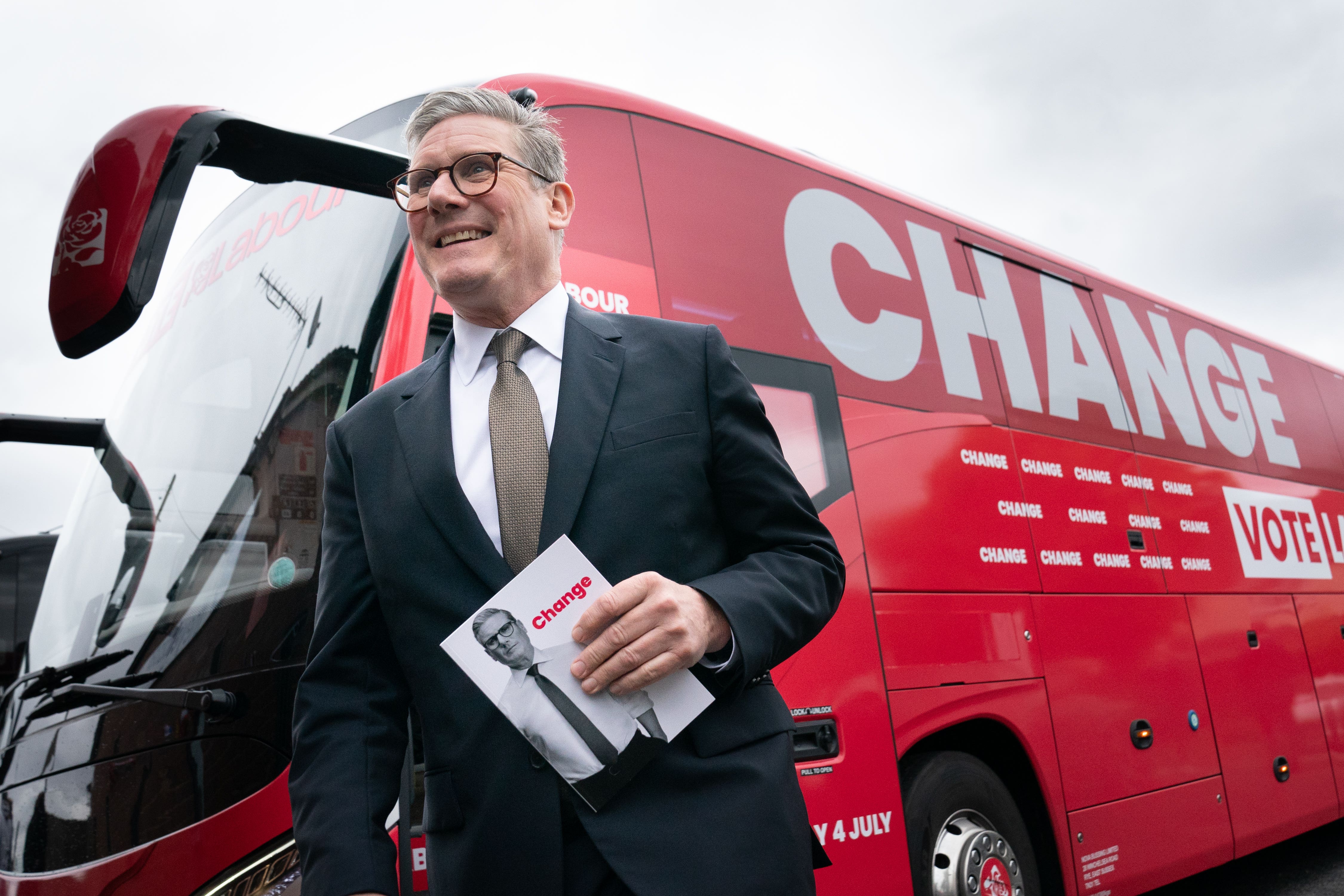Love Actually producer helps Labour raise more than other parties in first week
Labour raised around £350,000 more than the Conservatives in the first week of the General Election campaign.

Your support helps us to tell the story
From reproductive rights to climate change to Big Tech, The Independent is on the ground when the story is developing. Whether it's investigating the financials of Elon Musk's pro-Trump PAC or producing our latest documentary, 'The A Word', which shines a light on the American women fighting for reproductive rights, we know how important it is to parse out the facts from the messaging.
At such a critical moment in US history, we need reporters on the ground. Your donation allows us to keep sending journalists to speak to both sides of the story.
The Independent is trusted by Americans across the entire political spectrum. And unlike many other quality news outlets, we choose not to lock Americans out of our reporting and analysis with paywalls. We believe quality journalism should be available to everyone, paid for by those who can afford it.
Your support makes all the difference.A £500,000 donation from the producer of Love Actually and Notting Hill helped Labour raise almost £1 million in the first week of the General Election campaign.
Figures released by the Electoral Commission on Friday show Labour received £926,908 in donations between May 30 and June 5, compared to £574,918 received by the Tories.
The bulk of Labour’s money came in the form of a £500,000 donation from Toledo Productions Ltd, whose owner Duncan Kenworthy produced several romantic comedies starring Hugh Grant.
It appears to be Mr Kenworthy’s first donation to a political party, although the producer did donate £5,000 to David Miliband’s unsuccessful bid for the Labour leadership in 2010.
Other significant donations to Labour included £100,000 from entrepreneur Tony Bury and £70,000 each from businessman Clive Hollick, also a Labour peer, and hedge fund manager Stuart Rosen.
Labour also benefitted from £652,411 in public funds from the House of Commons following the dissolution of Parliament, bringing the total raised by the party during the week to £1.58 million.
Labour’s sister party, the Co-operative Party, received £120,000, largely in the form of a £90,000 donation from Autoglass boss Gary Lubner.
For the Conservatives, the largest donation was £75,000 from Lebanese businessman Bassim Haidar, who told the Guardian in May he was “urgently” looking to leave the UK after both main parties promised to scrap the non-dom tax status.
Mr Haidar also provided £13,085-worth of “travel” for the Conservative Party.
The party also received £75,000 from former oil services company chairman Alasdair Locke, and £50,000 each from former party treasurer Lord Michael Farmer and gas turbine company Centrax Industries, controlled by the Barr family.
The Lib Dems raised slightly less than the Conservatives, receiving £454,999 in the first week of the campaign, including £150,000 from businessman Safwan Adam.
The party also received £100,000 from food company GADF Holdings, owned by Neale Powell-Cook and David Mordecai.
Donations for Reform UK totalled £140,000 during the week that saw Nigel Farage declare that he would stand as a candidate in Clacton.
This included £50,000 from aerospace engineering company HR Smith Group and another £50,000 from Fitriani Hay.
Ms Hay, a racehorse owner, has donated more than £500,000 to the Conservatives since 2015 and gave £100,000 to Liz Truss’s leadership campaign in 2022.
The SNP raised £127,998, while the Climate Party and the Social Democratic Party received £25,000 each.
Friday’s figures are the first in a series of weekly reports that will be released by the Electoral Commission over the course of the campaign.
Political parties are required to provide weekly reports of donations of more than £11,180, after the Government increased the threshold from £7,500 in January.
Parties still have 30 days after receiving a donation to check that it is from a permissible source and decide whether to accept it.
Louise Edwards, director of regulation and digital transformation at the Electoral Commission, said: “We know that voters are interested in where parties get their money from, and these publications are an important part of delivering transparency for voters.
“While there is no limit to what parties can raise, there are spending limits ahead of elections to ensure a level playing field.”
For most parties, the spending limit for the General Election will be £54,010 multiplied by the number of seats they are contesting.